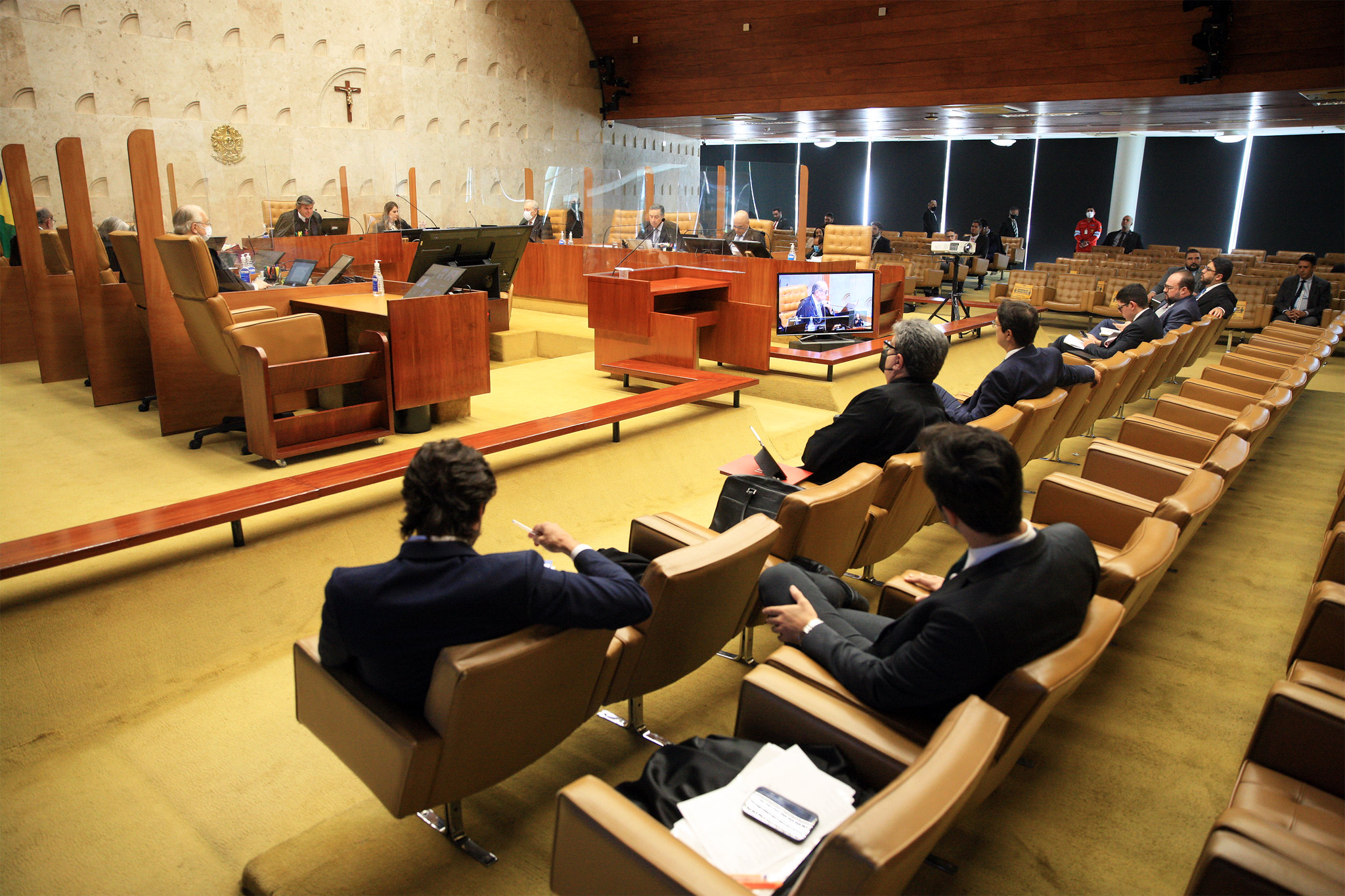JOB
The Federal Supreme Court (STF) should recognize the merits of the arguments in the Allegation of Noncompliance with a Fundamental Precept (ADPF) 944 presented by the National Confederation of Industry (CNI). In the process, the entity questions decisions of the Labor Court on convictions for collective moral damages in public civil actions that gave destination to indemnities other than those legally established. That's what experts heard by the report think.
The discussion was in the virtual plenary, but it was paralyzed on May 6, when Minister André Mendonça asked for a view, and it is not expected to resume.
Until the trial came to a standstill, only the reporting minister, Rosa Weber, had voted. The magistrate was not aware of the action and said in her report that it is not possible for the Supreme Court to analyze the issue because the ADPF would not be the appropriate legal instrument for the discussion of individual and concrete rights and interests, as argued by the CNI in the action. In addition, the Confederation would lack legitimacy, in the minister's view, for filing the action.
Law professor at the University of Brasília (UnB) André Macedo de Oliveira, a partner at BMA Advogados in Brasília, agrees with CNI's arguments. The judgment of the matter by the Supreme Court, in the professor's assessment, would give “legal certainty to the issue”.
“There are reasonable reasons for them to suspend the labor decisions in a precautionary way, as requested by the ADPF, and then continue to judge the action”, he commented, highlighting article 13 of Law 7.347/1985, which deals with Public Civil Action. According to Oliveira, the legislation makes it clear that compensation must be allocated to public and not private funds, as the CNI argues.
The article mentioned by Macedo says that “if there is a conviction in money, the compensation for the damage caused will revert to a fund managed by a Federal Council or by State Councils in which the Public Ministry and representatives of the community will necessarily participate, and their resources will be destined to the reconstitution of the injured property”.
Fernando Hugo Miranda, Doctor of Laws from USP and partner in Brasília at Paixão Côrtes Advogados, mentioned the same legislation and said that the decisions of the Labor Court are not based on the Constitution, but are being based on a systematic interpretation that has taken into account account resolutions of the National Council of the Public Ministry (CNMP). “ADPF 944 presents itself, therefore, as a relevant opportunity for a definitive clarification of the issue”.
The legal director of the CNI, Cassio Borges, believes that the matter brought to the STF is largely supported by the constitutional tone and the legislation - he cited, in addition to Law 7,347/1985, Decree 1,306/1994, which regulated the Fund for the Defense of (FDDD), and Law 9008/1995, which created the Federal Management Council, responsible for managing FDDD resources.
When explaining the importance of ADPF, Borges highlighted precisely the need to ensure legal certainty. “The entrepreneur wants to know, if he is convicted in a lawsuit for collective moral damages, if he runs the risk of having to create a fund, or of making donations, or even of creating and maintaining a foundation, that is, if he is going to stay behind at the discretion of each labor judge. ADPF seeks legal certainty to be able to undertake,” he said.
Industrial employers have an interest in the constitutional observance of the destination of these convictions. The fact that they are potential defendants convicted of offenses recognized in public civil actions within the Labor Court does not tarnish their legal interest, on the contrary, it reinforces it. It is absolutely pertinent that they want to see the legally imposed destiny of the amounts paid by them in judicial convictions respected.
The mere fact that employers other than the secondary sector of the economy are also impacted by the same type of unconstitutional interpretation of the Public Civil Action Law does not disqualify the CNI's interest in raising the issue addressed in the ADPF; on the contrary, it only expands, horizontally, the number of legitimated sectors to, through their national confederations and national class associations, trigger the constitutional debate before the Supreme Court.
.

 Mr. Alessandro Jacob speaking about Brazilian Law on "International Bar Association" conference
Mr. Alessandro Jacob speaking about Brazilian Law on "International Bar Association" conference